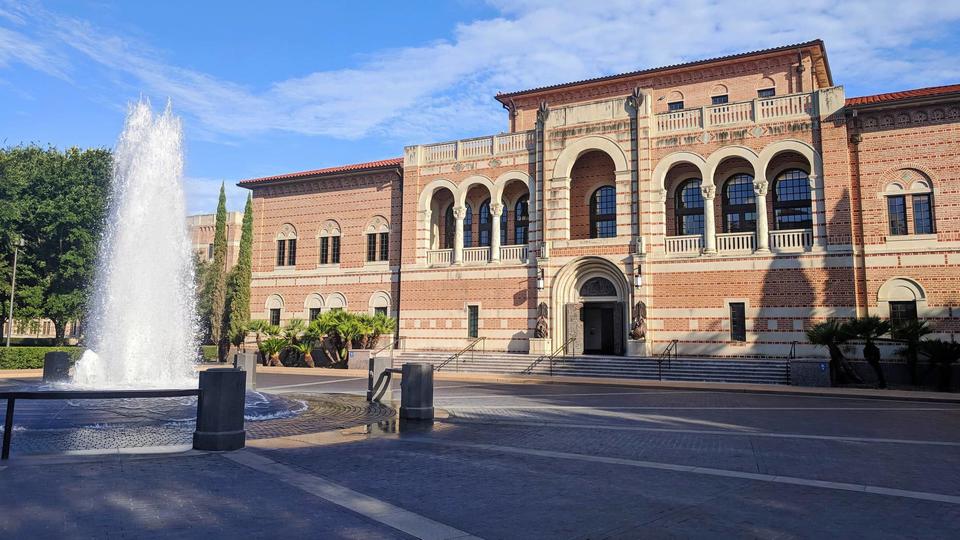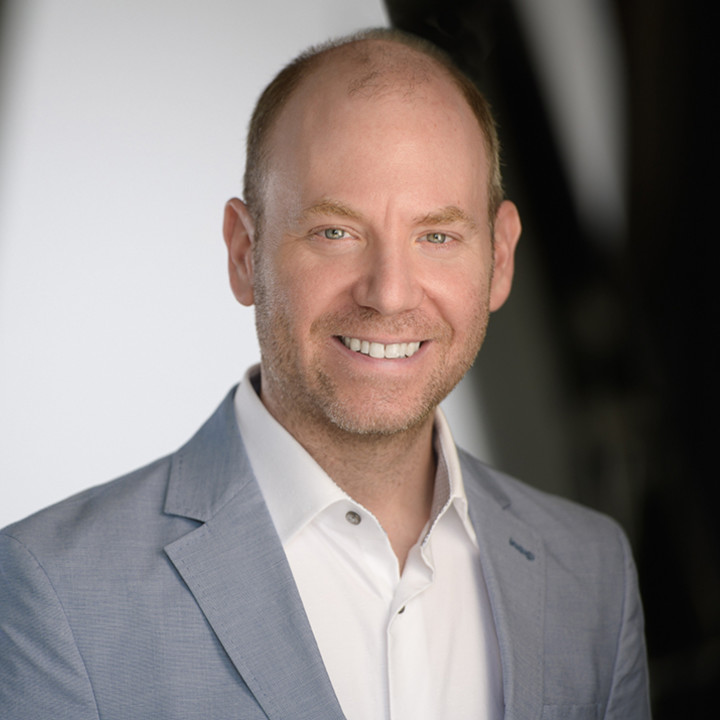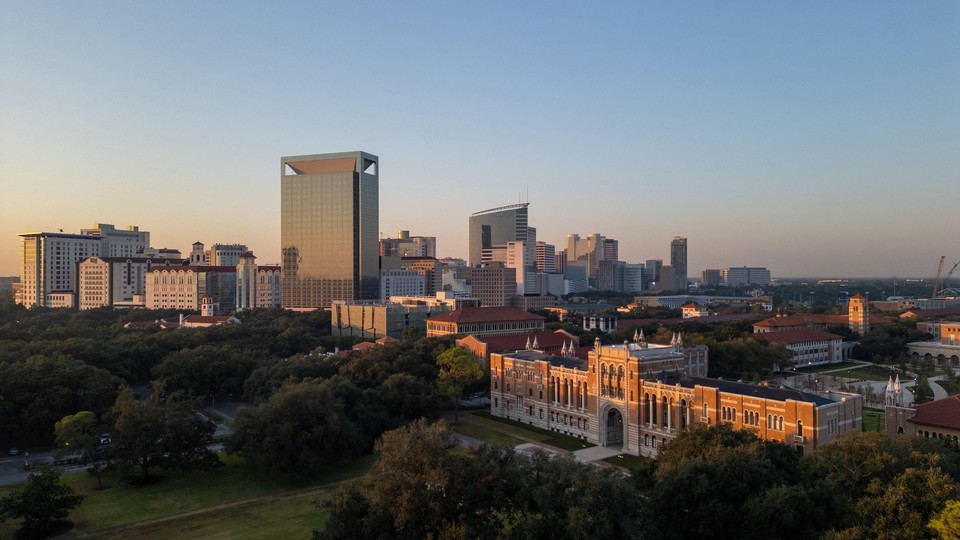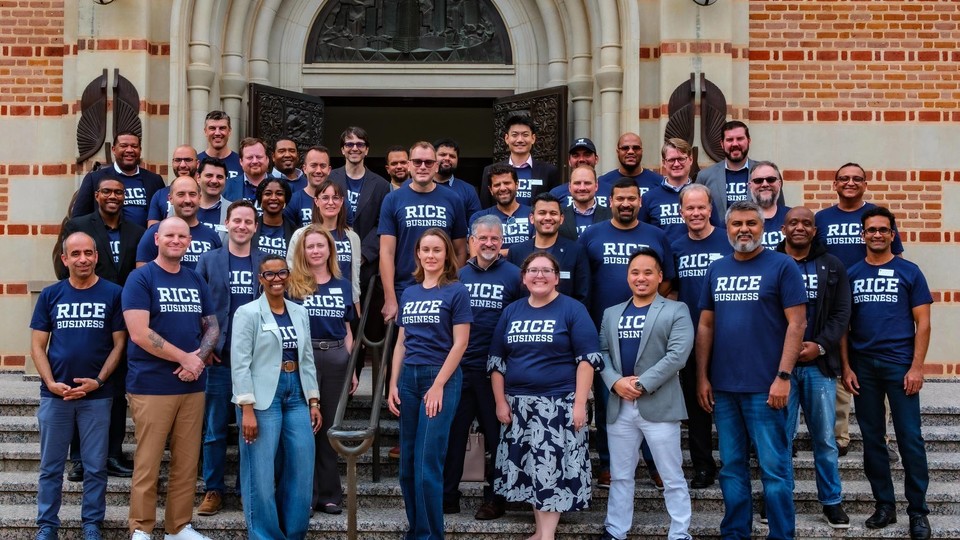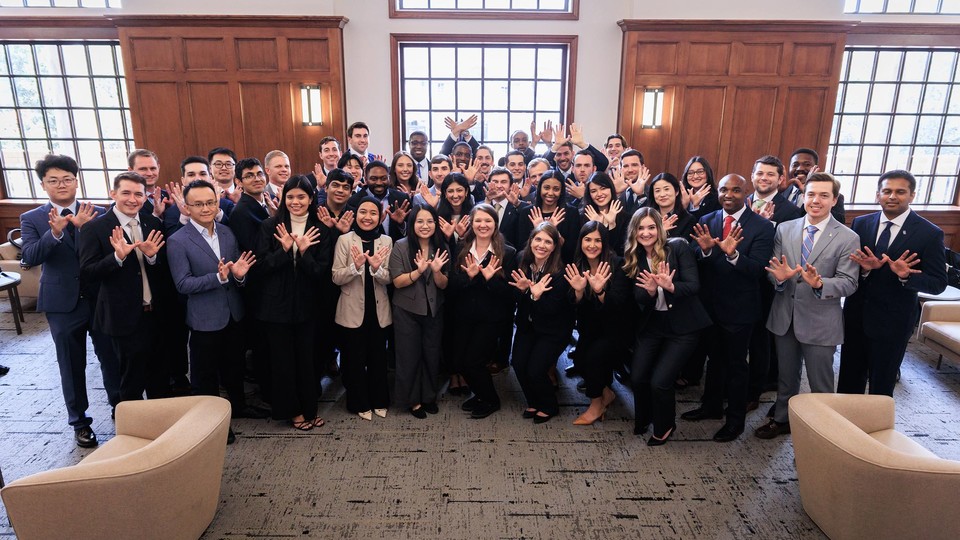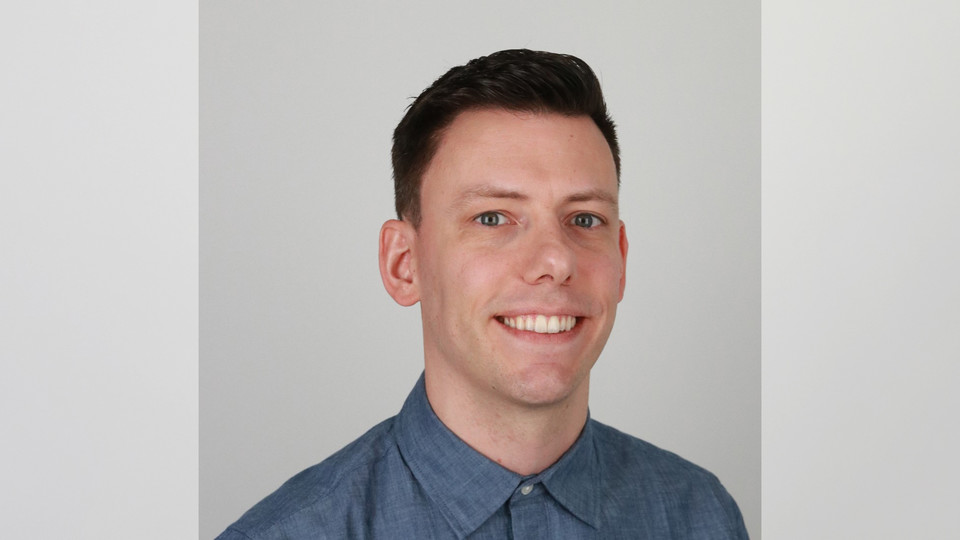Henry Gardiner Symonds Professor of Management – Organizational Behavior
Why Rice Is Launching A New Hybrid MBA
Rice University's new online hybrid MBA Program is the result of research into the needs and desires of prospective business school students.
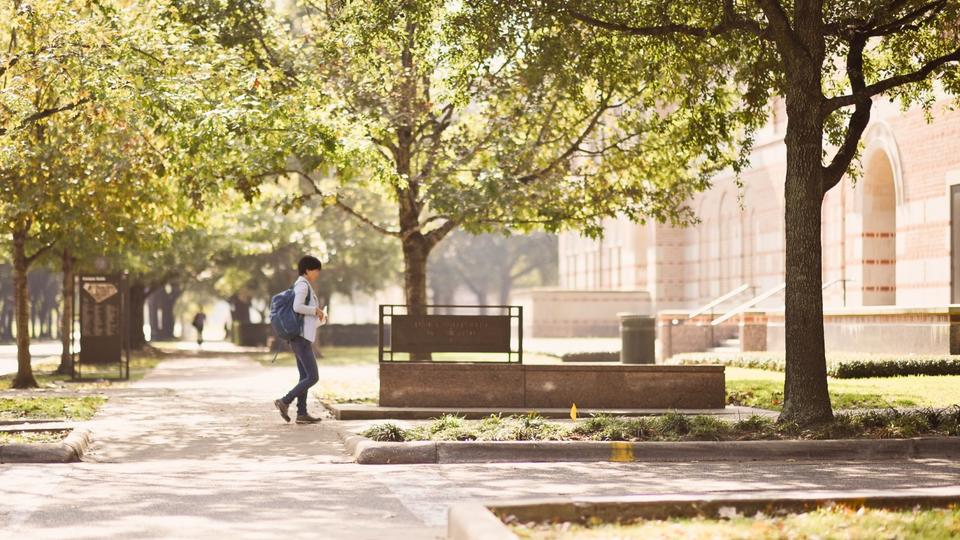
MBA Salaries & Bonuses At The Top 30 U.S. Business Schools
MBA salaries and bonuses were at record or near-record levels for the Class of 2022. Rice Business had a 14.9% increase in starting salaries in the last year.

Americans Are Taking More Control Over Their Work Lives — Because They Have To
“Career portfolioing” helps workers have agency over their jobs.


By Scott Sonenshein, originally published in The Conversation
One thing that’s become clear in the past few tumultuous – and for many, traumatic – years is that it’s easy to feel like there is no control in our lives. Control is a basic psychological need that helps people feel like they have agency, from how they live to where they work. One area where people have tried to wrestle back control is around work.
As a Rice University business school professor and author, I’ve examined through my research, teaching and readership the complex relationships between employees and their employers for nearly two decades. The aftermath of the pandemic is the latest iteration of a timeless negotiation between labor and management over control that took on added significance these past few years.
The pandemic accelerated a development that began years ago when workers realized they needed to take on more responsibility for directing their careers. This major shift reflects a potentially exciting but also unnerving reality for millions of workers.
From lifer to independent worker
For decades, employers had the upper hand in negotiating terms with employees. People exchanged unconditional loyalty to an employer for lifetime employment and a secure retirement. That model started to erode with an increase in corporate restructuring in the 1980s and 1990s. With the prospects of a secure job and comfortable retirement more elusive, employees switched jobs to regain some control. They sought the promise of a higher salary and a better work life. In the past decade, the average tenure at an employer dropped nearly 10%.
During the pandemic, a tight labor market allowed employees to use job mobility to feel greater control over their lives. Additionally, the freedoms afforded by remote work offset some of the losses of control caused by the pandemic. But the reality is that while changing jobs leads to a short-term boost in job satisfaction, that feeling is usually only temporary.
In a post-pandemic world, a new model is emerging that reflects concerns of a slowing economy and more uncertain future. Employees are increasingly rejecting the belief that a single job can satisfy all of their financial and psychological needs. Instead, people are turning to building a portfolio of simultaneous roles to create their career.
With “career portfolioing,” employees become free agents, relying increasingly on themselves to carve out a meaningful and rewarding professional life. They put together a mosaic of positions to collectively fulfill their aspirations around income, advancement, skill development and enjoyment. They are no longer subject to a longstanding relationship with a single, lifetime employer, or dependent on a strong job market.
One sign of the rise of career portfolioing is the increase in side hustles. In 2021, 34% of Americans reported having a side hustle, and over 60 million people planned to start one. As inflation rose, side hustles provided extra income in the face of soaring prices. But people also turned to side hustles for new learning opportunities (28%) and to find more enjoyable work (38%).
In research I’ve been conducting on side hustles in the sharing economy, I am finding that many people take these gigs to compensate for limited control in their “traditional” jobs. Although gig work comes with its own set of challenges – lack of benefits is a key one – people feel liberated by greater control over where, when and how they work. Switching on an app shifts allegiance from one company to another. Turning off an app ends the workday in an instant. People rely on side hustles to earn additional income but also because of the freedom that comes from being an independent worker.
Another benefit of portfolioing is hedging risk. Sudden layoffs, such as those recently affecting the tech industry, leave people feeling exposed to financial hardship and identity loss from being involuntarily sent to the exit. When facing difficult times at one job, people can turn to other parts of their career portfolio for security and stability.
Taking action on values
During the pandemic, people’s sense of mortality increased as the threat of serious illness or even death spread. Such times often prompt a deep reflection on values, including the purpose of work. When people took stock of their jobs, many did not like what they saw and quit at record numbers. Or, if they stayed, they increasingly pushed employers to align better with their values.
Historically, business organizations stayed quiet about controversial social issues, such as LGBTQ rights, racial justice and abortion – unless there was a very direct profit motive. That’s changed dramatically as employees increasingly demand clarity on company values – and actions to back them up. Sixty percent of workers approve of business leaders speaking out on social and political issues, and one quarter of respondents to a recent survey reported turning down a job opportunity because of a company’s position on social issues.
Employees, too, appear to be more comfortable expressing their views. At the beginning of the century, I conducted one of my first research studies on understanding how employees convince their workplaces to take a stance on divisive social issues. I found that employees concealed their values by framing them as economic opportunities. For example, sustainability initiatives around energy efficiency were cast as good for the bottom line.
When I recently ran a similar study, the dynamics had shifted. Employees were much more willing to talk about moral values and less willing to translate social issues into business issues. Such a dramatic reversal reflects employees’ growing sense of empowerment to make work more aligned with their needs. It’s hard to feel in control of your life if you need to suppress or even contradict deeply held values at a place where you spend most of your waking day.
A better future for work
Career portfolioing reflects a future in which uncertainty is too high to rely on a single institution to fulfill basic needs, and a failure of modern work organizations to deliver what employees truly value.
For employees, career portfolioing means more latitude over how their career unfolds. Instead of rising to the next rung of an often pre-defined and inflexible corporate ladder, they might instead think about the next addition to their portfolio, whether starting a new part-time job, taking a new class or pursuing a business idea. Elements of a career portfolio not only get added to produce income or personal growth, but also to support a person’s values.
No doubt, there are potential obstacles. Taking responsibility for a career portfolio requires additional effort. In our book “Joy at Work,” co-author Marie Kondo and I find that it’s all too easy to take on too many tasks and subsequently burn out. People get trapped into thinking the more they do, the better they’ll feel. Avoiding burnout starts with anchoring a career portfolio based on values and an ideal work life.
For employers, career portfolioing means competing for the full attention of their own workforce. I believe it should prompt a deeper reflection about how to better meet the needs of employees – or else they may leave or quiet quit.![]()
Henry Gardiner Symonds Professor of Management – Organizational Behavior
Never Miss A Story
You May Also Like
Keep Exploring
The Long-Term Value of the MBA
Rice Business is committed to helping you accelerate your career at any stage and supporting your professional growth long after graduation. The earnings potential shows investing in an MBA is well worth it.
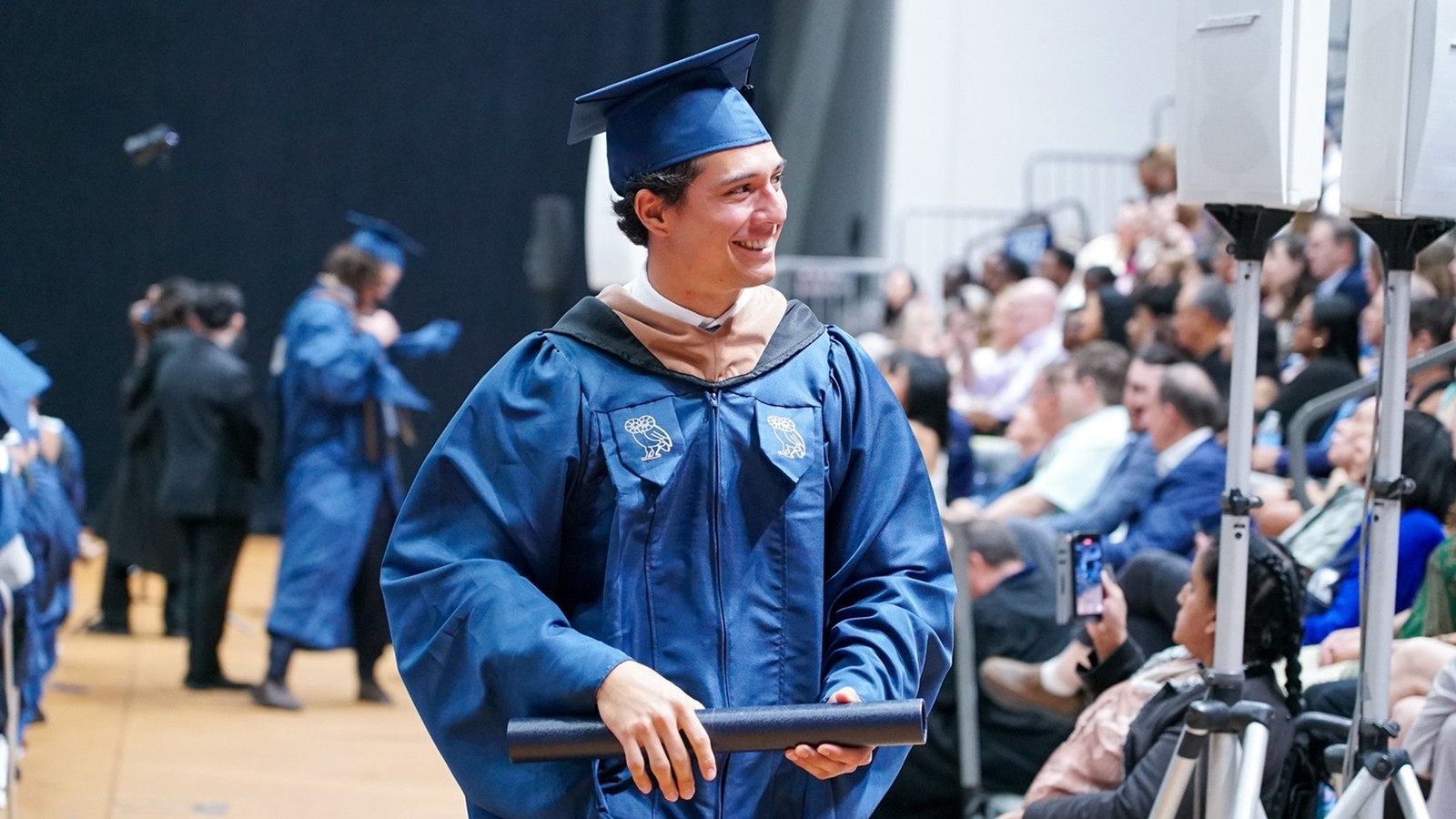

For the latest insights, check out our post on the return on investment (ROI) of the Rice MBA.
We know your decision to earn an MBA is a big step. You want your degree to pay off in meaningful ways — and not just in the short term. That’s why Rice Business is committed to helping you accelerate your career at any stage and supporting your professional growth long after graduation. And, when it comes to earnings potential, the numbers show investing in a top-ranked MBA program is well worth it.
Numbers Have Shown the ROI of an MBA is Strong
Over a 35-year career, MBA graduates reported earning a median cash compensation of $5.7 million, according to a PayScale analysis for Poets&Quants. In contrast, those with only an undergraduate degree earned $2.3 million less in lifetime earnings.
The study used salary data shared by graduates from the country’s top 50 business schools. The compensation figure is considered a low estimate, given that it does not factor in other earnings like stock-based compensation or the cash value of retirement benefits.
Seasoned business school graduates agree that earning their degrees was a smart move. More than 85% of graduates surveyed over 12 years said their graduate business degrees offered a positive return on investment, according to a Graduate Management Admission Council (GMAC) report featured in this article in Fortune.
Want to crunch the numbers yourself? Let our professor of finance James P. Weston show you how to estimate ROI for the full-time MBA program (since the professional, hybrid, online and executive programs are fully employed while earning their degrees). In this quick video, Weston explains why he considers the MBA “one of the greater return-on-investment degrees you can earn.”
Interested in Rice Business?
Powerful Community and Career Services That Grow With You
When you choose to pursue an MBA at Rice Business, you also gain full access to our Career Development Office, which has a proven track record of helping students accelerate their careers. We remain in your corner as your career advances. From one-on-one coaching to targeted programming and workshops, we offer individualized career services for alumni at all levels of experience as they pivot, grow and evolve.
Plus, as a graduate, you’ll have access to a slate of robust lifelong learning offerings, including opportunities to officially audit classes that pique your interest, or take an Executive Education course at a reduced alumni rate. Great leaders never stop learning.
But one of our most powerful resources remains our alumni network. When you graduate from Rice Business, you join a network of more than 10,000 alumni working around the world and across every major industry. One word comes up repeatedly when describing our community: responsive. That’s why we’re constantly connecting alumni whose paths may inform each other, or matching alumni to job postings submitted by other alumni.
Over and over, we hear the same feedback from Rice Business graduates across class years: The alumni community is one of their most valuable tools. Relationships built here last a lifetime.
Enduring Value in a Dynamic Landscape
Your MBA also offers an edge when it comes to leadership advancement as well as flexibility in an ever-shifting professional landscape. According to the GMAC survey cited in Fortune, 38% of business school graduates reported changing industries after earning their degrees. Further, 90% of corporate recruiters plan to hire talent with an MBA, according to a 2025 GMAC survey.
Our podcast, Owl Have You Know, is one way to hear directly from alumni (and others) about the impact of the Rice Business experience. During a September episode, Pierre Aristide ’22 described how the Executive MBA program gave him the tools to leverage his 27-year career in the military and private sector experience to pivot toward entrepreneurship. Aristide is committed to improving mental health treatment and is the co-founder and CEO of Impireum Psychiatric Group, as well as other ventures.
To get started earning a degree with staying power, check out our many MBA program options — including full time, online, professional, hybrid and executive.
You May Also Like
Keep Exploring
Rice Business’ online MBA program rises in US News rankings
MBA@Rice, the online program at Rice University’s Jones Graduate School of Business, climbed higher in four categories in the latest edition of U.S News & World Report’s Best Online Programs rankings out today.
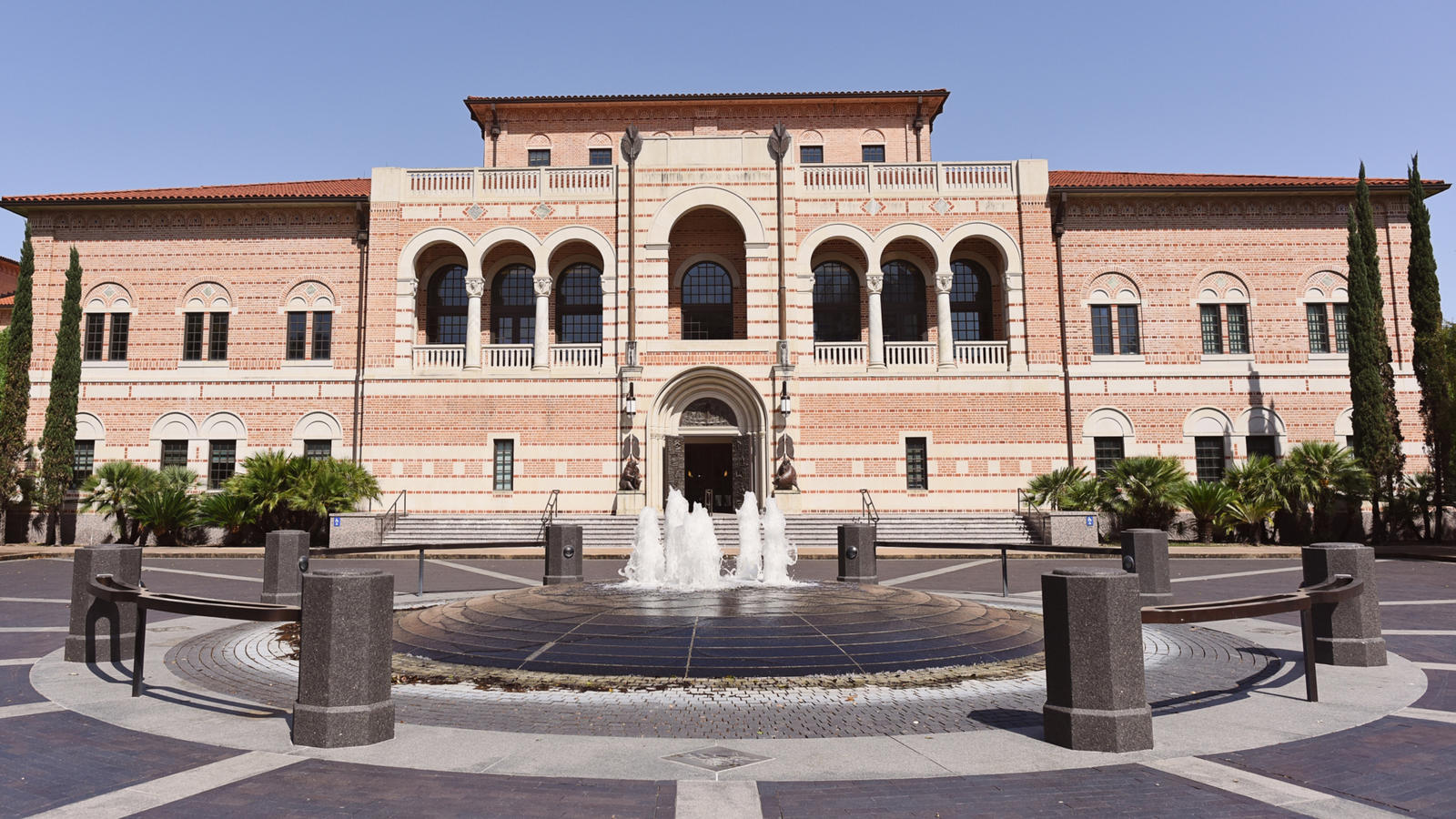
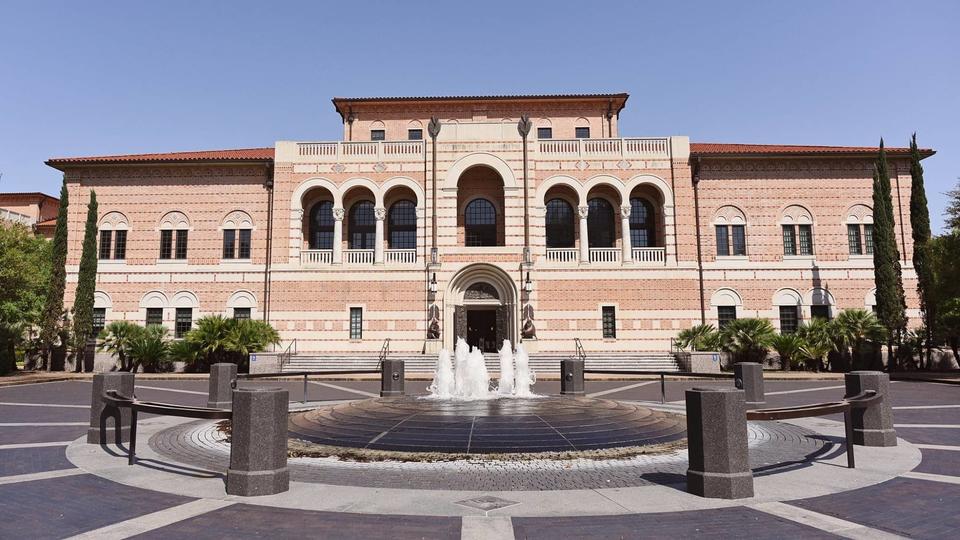
MBA@Rice, the online program at Rice University’s Jones Graduate School of Business, climbed higher in four categories in the latest edition of U.S News & World Report’s Best Online Programs rankings out today.
The categories:
- Best Online MBA Programs: tied for No. 12 (tied for No. 20 last year).
- Best Online MBA Programs for Veterans: tied for No. 10 (No. 14 last year).
- Best Online Business Analytics MBA Programs: tied for No. 10 (tied for No. 12 last year).
- Best Online General Management MBA Programs: tied for No. 7 (tied for No. 11 last year).
In addition, Rice Business rose 22 spots in the Online Master’s in Computer Information Technology Programs category, tying for No. 27 after being tied for No. 49 last year.
“We use the same professors to deliver the same rigorous, high-touch MBA in our online MBA as we do in all our campus-based programs,” said Rice Business Dean Peter Rodriguez. “The strong national rankings recognize our success in reaching highly talented working professionals who don’t live near enough to our campus or for whom an online program is the best option.”
Designed using extensive research on how online MBA students learn best, Rice Business’ purpose-built digital campus creates a collaborative space to advance a student’s education and connect with accomplished business leaders from around the world. To learn more about MBA@Rice, click here.
You May Also Like

Rice University’s Jesse H. Jones Graduate School of Business today announced the launch of its Graduate Certificate in Healthcare Management program, a 10-month, credit-bearing professional credential designed for current and aspiring leaders seeking deep expertise in the business of healthcare.
Jones School of Business to launch hybrid MBA program
Rice Business will welcome its first cohort of students in the new hybrid Master of Business Administration program, the first one in Texas, this summer.
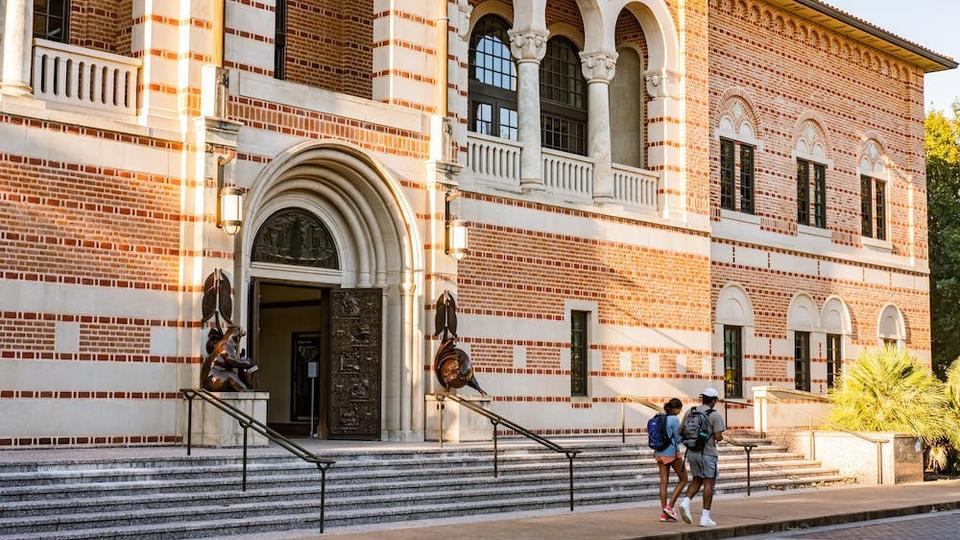
Rice University To Roll Out Texas’ First Hybrid MBA Program
The Hybrid MBA at Rice Business will be the first of its kind in Texas, requiring students to attend on-campus lessons just one weekend per month.

Rice University to offer hybrid MBA program
A Houston-area university will soon offer a new hybrid Master of Business Administration program, allowing for a flexible learning style. Beginning over the summer, the program will allow working professionals to pursue the master’s degree with a flexible schedule.
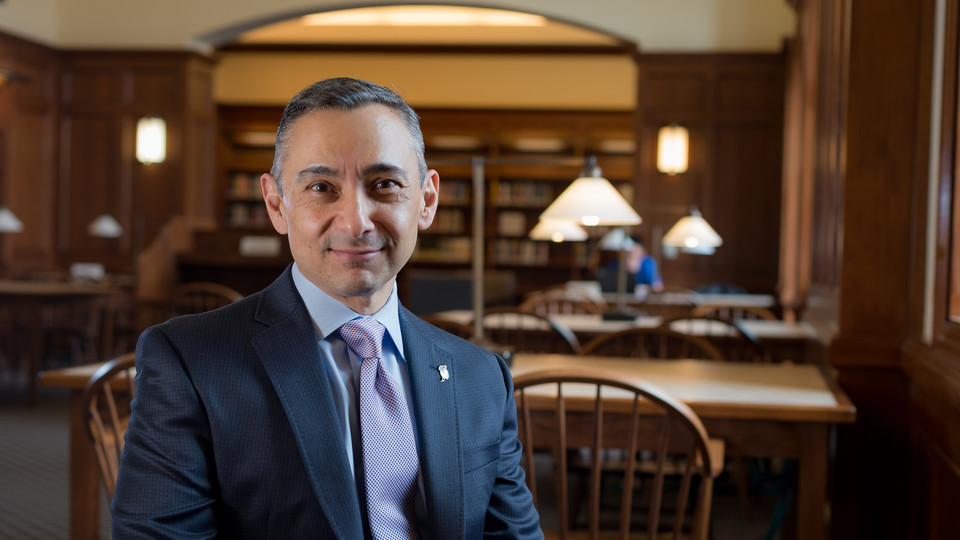
Taking Classes in 12 Different Cities feat. Mike Narvaez ’20
Season 3, Episode 8
This Houston native sits down with host Maya Pomroy ’22 to talk about how his son pushed him to get his MBA, maintaining connections with his cohort even though he did the online MBA program, and being a lifelong learner.
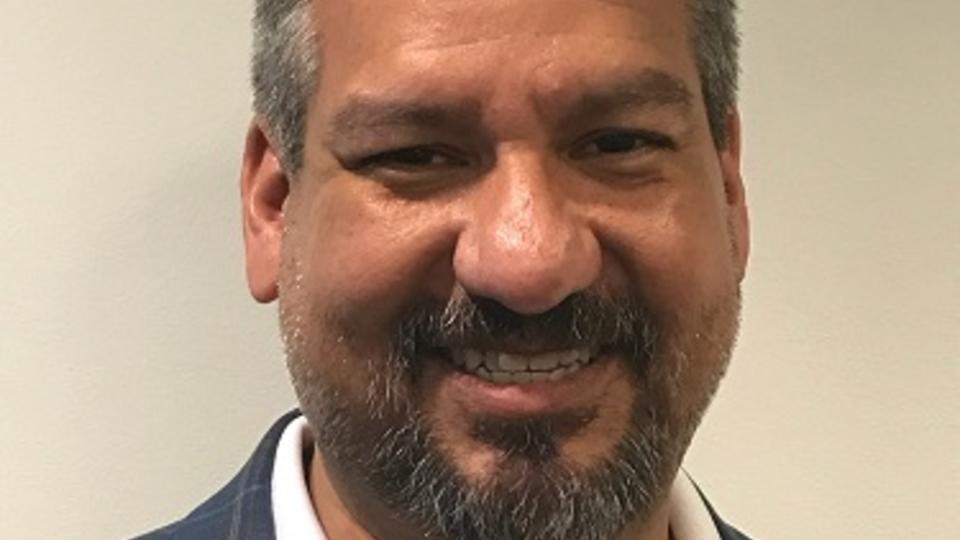
Owl Have You Know
Season 3, Episode 8
This Houston native sits down with host Maya Pomroy ’22 to talk about how his son pushed him to get his MBA, maintaining connections with his cohort even though he did the online MBA program, and being a lifelong learner.
Subscribe to Owl Have You Know on Apple Podcasts, Spotify, Youtube or wherever you find your favorite podcasts.
Episode Transcript
-
[00:00]Intro: Welcome to Owl Have You Know, a podcast from Rice Business. This episode is part of our Flight Path Series, where guests share their career journeys and stories of the Rice connections that got them where they are.
[00:13]Mike: Yeah, I guess it doesn't get more Houston than working for NASA and then going to school at Rice.
[00:17]Maya: On today's episode of Owl Have You Know, we connect with Mike Narvaez, online MBA of 2020. We talk about his impressive career including working as a safety engineer for the international space station, to his growth as a leader at multiple organizations here in Houston and internationally. Mike also shares who the catalyst was in his pursuing an MBA, his passion of being a lifelong learner, and how the opportunity at Rice Business changed the trajectory of his life. Mike, it's a pleasure to have you here with us today.
[00:51]Mike: Oh, the pleasure's mine. Thanks for having me.
[00:53]Maya: Absolutely. So, you're a Houston native. You grew up in Spring and then you went on to Texas A&M and got a bachelor's degree in Industrial Engineering. And then this is super cool and I'm going to geek out a little bit because your first job out of school was a system safety engineer at GHG Corp where you are identifying hazards affecting the international space station and astronauts by providing real time support admission control. Oh, my goodness gracious, that's amazing. Can you tell me about that?
[01:29]Mike: Yeah. I guess, I guess it doesn't get more Houston than working for NASA and then going to school at Rice. But yeah, it was kind of unbelievable to get an offer to go work for GHG, was a subcontractor at the Johnson Space Center and we were responsible for the safety of the international space station.
So actually, I went to flight controller school with everybody else that you see in the fame mission control, wasn't actually in that room, was in an engineering room that, you know, probably doesn't get as much attention, but it was awesome because just dealing with state of the art technology, a dream come true. I think for a lot of folks, to go work for such a fascinating organization as NASA, it was as very inspiring as it is when you read the title.
[02:09]Maya: No, for sure. And like I, you know, I wanted to be an astronaut growing up as a kid. So, any sort of link to NASA is just really, really cool in my opinion. And so, did you get to meet any of the astronauts that were up there on the ISS?
[02:24]Mike: Absolutely. I did actually sit in mission control during flights. And so, I remember in particular one mission where they were trying to repair a door on the international space station. And at the time, there were only two pieces to the space station. So, closing a door was a big deal because you could trap an astronaut on the other side. And I remember going to where we had the mockups and actually working with an astronaut on, you know, what's the best way that we could do this door repair without closing it. And then essentially, if something went wrong, then you had an astronaut trapped on the other side and we couldn't get them out.
So luckily, on that particular mission, the smallest astronaut and the astronaut core was in flight. So, that gave us a little bit of leeway on just how far we could close that door and still allow somebody to get back through. So, it was everything you've seen like on the Martian and any other NASA show, where there's just extreme problem solving going on. That's exactly what it was. You just kind of get presented with a problem and it's astronauts, it's engineers, it's all hands on deck, how do we fix this problem.
[03:30]Maya: So, The Martian is my all-time favorite movie and I've watched it like a hundred times. So, interesting that you mentioned that. And it is, it's about finding a problem and solving it. And you know, one of the things that I tell my kids all the time is that there's always a solution to every problem. And I feel like that's an important thing certainly in life and in your experience at NASA.
[03:53]Mike: Yeah. It was great. I mean, I worked with a bunch of, a lot of engineers just out of college. And so, weren't really tainted, you know, by, like, what you could or couldn't do or what you should or shouldn't do. It was, it was really neat to be around a lot of brilliant minds and just we got thrown a problem that nobody had to deal with before and we just had to figure out the best way to address it, and we did. So, every day was a new day. It was always an exciting challenge.
[04:18]Maya: Absolutely. And so, then you moved on and you became a manager of safety and risk at Sysco.
[04:24]Mike: Mm-hmm.
[04:24]Maya: So, what was that transition like?
[04:26]Mike: Well, you know, is, you know, would love to have stuck around NASA. Unfortunately, I lived on the complete opposite end of town. So, an hour and 40-minute commute was a bit much especially with a young child. And so, was looking to see if I could find something closer to home. And the great thing about Sysco was that it was a management position. So, kind of only a year out of school, like moving into the management ranks was something that I wanted to do. Didn't know that it would happen that quickly. But Sysco Foods was, at the time and I believe still is, the largest distributor of food, and they every industry you could think of from hospitals to schools, huge dry warehouse, frozen. I mean, we had a warehouse that was a quarter million square feet freezer essentially, just unique challenges. And you know, at night, you'd have order selectors that would go through these gigantic warehouses and restaurants want a box of this and a box of that. And so, they're literally just kind of zigzagging up and down the warehouse, grabbing these orders. And then all night, they're doing this so that first thing in the morning, when the drivers come in, they're loading those trailers. And then they're actually out delivering that product to school districts or the Kemah Boardwalk or just about anywhere that you can imagine that needs food. So, was actually a really interesting study in ergonomics.
So, if you can imagine the amount of lifting boxes and loading and then our drivers undoing those pallets and then putting them on dollies and then bringing them in. We actually have partnered with OSHA slightly before I had gotten there, where they had said, hey, we want you guys to be the industry leader in this because there's a lot of people getting hurt in this industry. And we want to partner with you and show the rest of the industry that this can be done right. And we did. We actually had huge success there in terms of not getting people hurt.
[06:17]Maya: And not getting people hurt, obviously, a priority for all organizations. And you are a certified safety professional. So, could you tell me what exactly that certification is and the process of obtaining it and all that goes along with that, and why it's important to you?
[06:34]Mike: So, I mean, the process is done through the board of certified safety professionals. It's considered the CSP. It's considered kind of the highest certification in the health and safety ranks. There are many jobs that you can't even apply to if you don't have that certification. So, there's a lot of advantage to the individual in getting that. And I'd be lying if I said that that wasn't one of my drivers. Certainly, wanted to get better jobs. And you know, in order to get some of those better jobs, you had to have that certification. And really, the process is and it's got a couple of ways that you can get there, but essentially, you have to prove through experience on the job, education and then an examination process that essentially, you know the basics of the profession. So, just kind of depending on what your track is.
There some folks that, you know, graduate with a health and safety degree and kind of, can kind of immediately sit for the first part of that exam. Most of the folks, myself included, you had to work five years then take one exam then work some more years to take kind of the second exam. So, it's a pretty tough process in terms of, I think the pass rates are like really tough. I want to say like 30%, 40% of the people…
[07:42]Maya: Yeah, 30%, that's low.
[07:44]Mike: Yeah. So, it's a really challenging thing. I mean, for me, I love learning, continuing to learn. And so, I was like, what better way to learn my profession than to go through that process. So…
[07:54]Maya: Absolutely, lifelong learner which brought you to Rice. And we'll get to that in a minute but after Sysco, you moved on to work for the Metropolitan Transit Authority here in Harris County. And then you had a six-year career at Chevron Phillips, chemical company and safety health and security. And then you were at BP, where you are right now. Is that correct?
[08:16]Mike: Yes. Yeah. So, majority of that has been in the safety business, 20 plus years in that. You know, right about the time that, you know, I was talking with my boss and saying, hey, I think I've got some more to give. And he's like, well, here's kind of where you are in the organization and there's only so much more you can go. And I just didn't really like that answer. That hearing that, I'd kind of ceilinged out, I guess if you will.
And so, I was like, well, I know I've got more to give and there was kind of a personal situation that made me decide to go back to school. And it all just kind of came together. And so, technically out of the health and safety business as that being my core business. I'm more in the operation side but there isn't a day or a week that goes by that I'm not talking safety. And so, that's been a huge, you know, part of what I do now.
[09:04]Maya: So, tell me, clearly that experience with your boss made you think about continuing on and getting an MBA. When did you decide that you were going to look into the opportunities that are… obviously you needed to stay in Houston. You have a family. You have children. And what drew you to Rice?
[09:24]Mike: Well, I mean, part of that's really easy because I've grown up with it in my backyard. And I even toured Rice a couple of times in middle school. Our school district was really good about getting us to local colleges and really kind of trying to plant that seed. I think anybody that aspires to go to college knows the gravity of the weight that the name of Rice university brings.
If I'm being fully transparent, it was my stretch school. It was my, there's no way I'm getting into that school, but I'm going to apply anyways because oh my God, what would happen if I did? I mean, really, the turning point for me was my son. So, on the eve of sending him off to college, he asked my wife why I didn't have my master's degree. She has hers. She pretty much plainly told him, well, you guys, you know, we started our family pretty young coming out of college. And I wanted to be a very present father for my kids. And I was, can say that with a very straight face. And I really put my masters kind of on the shelf and said I'd come back to it.
It mortified him. He made me promise the night before we dropped him off that I would look into it. Literally that night, I got a feed. I think it was Facebook on Rice University and said, yeah, let me find that out. And literally the next morning, I get a phone call, hey, we saw that you've got interest in the program. And this thing just grew legs.
Unbelievably, next thing I know I was, you know, studying for my graduate exams for the GMAT and then I was applying. And I remember just kind of turning and looking to my wife and going like, what the heck is going on here? She just kind of said, just roll with it. I mean, it's all fallen into place. Just keep going. And so, but yeah, I mean, that's the simple answer. I mean, the Rice name is really kind of the draw. And you know, having talked to some other folks that went through the program, heard nothing but great things. And then even when I came down to my final decision because I got accepted in a couple other schools, I remember talking to a colleague of mine that said, Rice, man, Mike, that's where we send like our top brass. Like-
[11:25]Maya: Yes.
[11:25]Mike: … that's impressive. Like, you need to go there. And so, I went.
[11:29]Maya: So, one of the reasons that you didn't do it to begin with was the whole reason that you actually did, your kids. So, how many kids do you have? Tell me about them.
[11:42]Mike: I have three kids. They're all adults now. My oldest is 25. She's a marketing manager as a… lives in Dallas. My middle son was attending Oklahoma State. He's actually taken a bit of a breather. I think the pandemic and college was a bit much to handle but I know looking at getting back into the fray. My youngest daughter was actually a college basketball player, played for a couple years, and recently said, you know, I'm done with that. Pretty challenging lifestyle, I'll say that, but is actually looking at going to U of H in the fall to get her degree in architecture. So, I think she's in that transition mode of no longer being a college athlete.
All super active, all wonderful human beings, which was exactly what I was after. I'd love to brag on them, but I love to brag on the fact that they're great people. They make me proud every single day. And that was my main objective, was to raise good kids. And I think I did that.
[12:45]Maya: Yeah. From the sounds of it, it sounds like you succeeded for that. And you did. You waited 'til they were grown to pursue this MBA. And one of the reasons that you chose the online program was for that flexibility. And it's a new, it's a relatively new online program.
[13:04]Mike: Yeah. I mean, it was a must. I mean, it was funny. I really went into this whole process, not so much hung up on I'm going to this school or I'm going to that school. It had to be online. And part of that was because my youngest daughter at the time, it was her senior year. So, we were packing my son up and sending him off to college. And senior year as a basketball player was huge. She ended up having a monster season that year. And I just couldn't miss games. I didn't want to miss games. And so, I still needed that flexibility. And so, more than anything else, the online program had to stick.
I already have an hour plus windshield time driving to work. I just didn't want now drive another hour to Rice and be there for a night or a weekend. And you know, I just, I wanted that flexibility. And as it turns out, it was a really great decision when the pandemic hit. Because when the pandemic hit, which was literally halfway through, we never missed a beat. And we'd already been accustomed to zoom. And we'd already been accustomed to an online platform and online learning. And so, it just, it was phenomenal in that. The pandemic really had zero disruption on the process.
[14:18]Maya: Well, and that's also interesting that you mentioned that because I was also deciding whether I was going to do the online program or the executive program, and had applied before the pandemic and was accepted before, I mean, right around that time. And so, I was like, well, I mean, I wanted to be in person. So, and I have younger kids, but I wanted to be in person and have that interaction. However, we had to start our executive program online because of the pandemic. And I think that a huge benefit and why we were able to pivot in the executive program is because of the online program and because of the capabilities that Rice had instilled into that.
And kudos to Dean Rodriguez and the entire team at Rice because for us, it was an adjustment because we were online, and then we were in person, and then we were a hybrid and everything else. And interestingly, I think that a lot of my classmates got comfortable with having the online option. And so, that's a, that's a tremendous benefit as you know. I mean, you've got folks that have grown children. You've got folks that have no children. You've got folks that have babies and jobs and everything else. So, it's really remarkable to have that kind of choice.
[15:35]Mike: No, I mean, that's huge. Truth be told, two years after, I probably would've, like you, I'm a people person. I would, I would've loved to have been face to face and really had that exchange with the folks in my cohort. But you know, at the time, that, again, my bigger priority was my family. And I just didn't want to miss out on that. And so, really, the online format was really the best.
And then the other thing that I didn't mention before was that my job changed in the middle of… so it's funny. You know, for years, I've been saying I wanted more. I wanted a bigger job. And it just hadn't worked out. And then two months after applying to Rice, that opportunity showed up.
[16:17]Maya: Funny how things work out-
[16:18]Mike: So then, it was like-
[16:18]Maya: … that way, isn't it?
[16:21]Mike: Yeah. And what it did is it, it was a lot of travel. And I think at one point in time, I had emailed the folks at MBA@Rice and said, hey, just so you understand how incredibly helpful this format was, I have taken classes in 12 different cities-
[16:34]Maya: Wow.
[16:35]Mike: … ever since, you know, I did that. So, I was taking class from Chicago, New York, London, just all these sites that I had to get to. And then also, again, my daughter was playing college basketball and at the time, we were traveling all over the country to these tournaments and things like that.
And I was able to, again, keep up with my education and not miss a beat because of the online format. But I agree. I think the great thing about Rice is it's kind of like, you know, what's important to you? And here's all these formats that we have available to you. And I certainly, obviously, I didn't do the face-to-face program. But having gone through the online program, I don't feel like I got cheated out of a, out of an education because I wasn't face-to-face. It was just as rigorous and as tough as I had suspected it would be. And certainly, the knowledge that I gained through the program has shown up and worked numerous times.
[17:29]Maya: Yeah. And Rice really does a great job of removing those barriers to entry, as we learned about in our program. To really be able to allow those that really want to go after this and recognize the importance and the need of this kind of education and to be able to weave it in and to make it work for you is what a lot of, a lot of schools don't have that. And that's one of the things that really drew me to Rice, and it seems like we share that.
[18:01]Mike: Yeah. No, absolutely. I mean, the fact that there were, there were options was just phenomenal. And then again, the pandemic was just, it…
[18:10]Maya: Rising.
[18:11]Mike: Well, I mean, I saw my kids struggle with it. I saw my kids go from a face-to-face environment and all of a sudden, they were thrusted into it had to be online. And so, I saw everything from teachers and professors that refused to utilize online platforms like zoom or it was just completely foreign to them. And I saw where their education suffered because of that And, you know, ultimately, at least in one of my kids' cases, it led them to be like, hey, I need a break from this because it was, it was on again off again. And it just, it was, it was just really disruptive. So, I thank God every day. I think about how I was able to get through that. And really, Rice offering that opportunity was just phenomenal.
And I think it was Dean Rodriguez, him and I had a conversation not that long after that where he'd said, you know, because the online program, the MBA program was the first that Rice, as a whole university, had done that. So, when the whole university had gotten impacted, they were able to take the lessons from MBA@Rice and immediately transition to those in the other disciplines. And so, I know it helped. Kind of to your point earlier, it helped the entire university, those that were, that were showing up face-to-face. And so, yeah, we got a little badge of honor that said, hey we helped char blaze this. And we helped kind of iron out some of the kinks before it went to everyone else.
[19:27]Maya: For sure. And you were. You were an expert. Did you, did you give your kids any kind of advice when they had to go to online learning?
[19:33]Mike: Yeah. It's funny. You know, out of all the things that I expected to learn from Rice, you know, becoming a zoom expert. You know, I was zoom before zoom was cool, was not exactly what I was envisioning, but it worked. And in fact, I even before, you know, even our environment here at work, it really embraced Microsoft teams, which is what we use now.
We were struggling with some of that platform. And I was able to use my zoom account to host some meetings and do some collaborative sessions. Because the way that the zoom platform is set up and the MBA@Rice, you could have breakout rooms and, you know, bring people back. And it was just like a… most people were just trying to figure out how to get off mute-
[20:12]Maya: Right.
[20:13]Mike: And you know, I was able to not only host a meeting but, you know, do breakout rooms and do some pretty, I'll say, fancy stuff. I'm making quotes here, you know, with zoom before anybody knew anything about it. So, that was, that was really cool. If nothing else, Rice taught me how to use the business tool.
[20:28]Maya: Well, and there was lots of memes about that, right? The meme of you're on mute, you're on mute.
[20:33]Mike: Yeah.
[20:36]Maya: Or maybe you should turn your camera off before you're taking a phone call or, you know, going and making yourself breakfast or whatever it is that you're doing. Those zoom faux pas so to speak.
So, I wanted to ask you, what's your favorite experience during your time in the Rice online MBA program? What were your biggest takeaways? Tell me about the relationships that you've built. And what really you feel is, you'd like other people to know that are considering something like this?
[21:06]Mike: Yeah. So, what I would say is definitely, there's a balance here, right? You're going to gain something. You're going to lose something depending on what avenue you take. And you know, again, I didn't do the face-to-face program. So obviously, I can't speak on all the pluses and minuses to that.
One of the biggest things for me with the MBA@Rice program that I know that I gained that I wouldn't had I gone to more of a traditional face to face was there were people in my cohort that were halfway around the world. There were people in my cohort, I mean, we had a Naval officer that was stationed in San Diego at the time that was on my cohort. We had people that were on the east coast, the west coast, people like me that went to Texas A&M that were in a whole other state, you know. And so, it was kind of, it was fun to have that connection of somebody that was, went to school but, you know, was often in other part of the world or another part of the industry.
So, I thought that was spectacular that if it were not for the online program, I wasn't going to, you know, mingle with people in California or mingle with folks in another country. And so, that was awesome because it just, you know, it just added another layer of complexity.
I think one of the greatest things about when you, when you join an MBA program is that I mean, for me, I really wanted to learn from the other people in the program. And so, the more diverse that is, you know, whether that's something as simple as geography, it certainly makes the program, you know, more enriching for me because I learned just as much from my, from my fellow students as I did from my professors.
And then this is going to sound kind of funny but the other favorite part was when we got together. So, one of the things that the-
[22:45]Maya: Yes.
[22:45]Mike: … MBA program has is that they had, they had these, it was called the ILE and the, I believe, the GRE, but essentially where we had to come on the Rice campus face to face and when we had to do an international trip. And of course, that was all face to face. And the beauty part about that was that we got to meet adjoining cohorts. So, folks that were a semester in front of us or a semester behind us. And so, that was awesome, again, because it just really opened up your exposure to other professionals and also hear their experiences. And we're all in the same program, right? So, it's always helpful to hear, like, oh man, that class was, like, just killer, you know. Or you know, or like, oh no, I really got a lot out of that, you know. And so, if nothing else then to just kind of talk about the program and because everybody, you know, want something a little bit different out of it.
There were people that came there that wanted more of a financial, you know, or accounting spin to it. There were folks that wanted more of a generalist spin to it. And so, you know, the more people that you got exposed to and the more people that you could kind of, you know, talk to and then you could gravitate to those folks.
And so, there are actually people that I still stay very connected with, that weren't in my actual cohort. And the only way that I met them was coming to those face-to-face. And later on in the program, the cohorts mingled more the second year, but it sounds ironic that the biggest thing about the online program I enjoyed was how much interaction that we actually got with everyone.
[24:15]Maya: Yeah. And I think that it also build stronger bonds, you know, because you do see everybody in those little boxes and you're able to see everybody all at once.
[24:27]Mike: I would say Rice did an unbelievable job of making us feel like we were, you know, even though we were online that we were still part of the university. I mean, they would invite us to stuff on campus all the time, everything from professional lectures to the famed parties that, you know, the folks that are, that are face to face know all about. They would invite us to those things. I mean, they were like, super conscious that, like, we want the online students to feel connected to the university. And I think toward the tail end of it, they even went so far as, hey, if you want to come in and sit in on, like, the women's leadership conference that they host, so the diversity conference that they host each year, they actually were helping people finance, like, the trip to come out and do that.
And so, I was absolutely blown away because it could have been very easy to be out of sight, out of mind and just, you know, not feel like they owed us anything in terms of making us feel physically connected to the Rice community. And I thought they just knocked that out of the park in terms of, you know, I really feel connected to the university.
[25:30]Maya: Yeah. They do a lot of things really, really well. And I will say that feeling connected even though everybody was feeling a bit disconnected during that time was really-
[25:38]Mike: Yeah.
[25:38]Maya: … unique. And I'm very grateful for that as well for my experience because I started in 2020. And so, we were the COVID cohort so to speak.
[25:48]Mike: Right.
[25:48]Maya: I did want to ask you. So, when you see everyone online and then you come together in person, and this kind of happened to me, and I wanted to know if this happened to you as well. Is the way that you imagined people, the way that they were? Because what I noticed was you show up and you're like, man, you are so much taller in person than I would have ever imagined. Did you have any experiences like that?
[26:12]Mike: It's so funny that you mentioned that because that was the, that's the immediate thing that happens. So, everyone, right, is when you're online, there's tall as there, you know, mid chest to their top of their head. Everyone's about the same height, right? It is amazing because the first time we all got together, there was this measure up that was going on in terms of, yeah, like, oh, you're much taller than I thought you were. You know, so, it's so funny you bring that up. That's exactly what happened. Like, day one, everyone was like it just, we were out of that medium where, you know, everyone was the same height and all of a sudden, that became a big deal. But yeah. That's kind of funny.
[26:49]Maya: It is. It is. So…
[26:50]Mike: It was just, it was just super nice to connect. I mean, it, you know, just heck, just to give somebody a hug. I mean, I'd been, we'd been in school with them for, you know, months, almost a year and you'd never, you know, physically we're in the same space. So, it was just really cool.
[27:04]Maya: Yeah. It's a human interaction, you know. And that's something that I believe, COVID really made us reevaluate the importance of it, to really be in the same room and to be able to give somebody a hug or a high five or a fist bump or anything like that. I mean, as human beings, you know, we crave that kind of a connection. COVID wasn't the best and for a lot of things and in a lot of respects, but in some ways, I think it made us reevaluate and really recognize what you value.
[27:38]Mike: I think collaboration, face-to-face collaboration, you just can't substitute it. I know my wife, who working professional as well, we would talk about the beginning months of COVID. And we would have 20 meetings a day because we were scheduling 15-minute meetings, you know, to just, well, I need to catch up with that individual on this or-
[27:59]Maya: Yes.
[27:59]Mike: … or I need to do that. And I remember at the… and I didn't realize it at first. But at the end of the day, just being absolutely exhausted because of just all that extra mental energy that I had to expend on. Okay, who do I need to go talk to? And yeah, it was going to be a quick conversation, but I got to get on their calendar.
Whereas here, and I'm in the office today, I could just walk down the hallway and I could just have that quick conversation, that five-minute conversation, get that answer that I needed. One of the terms that we use here is casual collisions, you know. When you're online, those are completely gone. I mean, as cliche-ish as it, as it sounds. The water cooler talk just goes away and those are helpful. Those are incredibly helpful. I can think of the first week that I came back to work here, and it was me and the head of projects and my boss, and we just happened to into each other and solve two problems in five minutes by us just bumping into each other. And, you know, and online, that just wouldn't have happened.
[28:59]Maya: Yeah. It's organic.
[29:01]Mike: Yeah. I think the answer's both. I mean, I certainly love the idea of working from home. And I certainly love the idea of collaborating. And so, I think the real challenge is trying to find out what that right mix is. And I think, you know, it was about 30 years of business evolution and about six months of trying to figure out how we work in this hybrid type environment. I mean, I know there's folks that will argue either way, but I'm a firm believer that it's a little bit of both.
[29:29]Maya: It is. So, being a father and a husband and a philanthropist and a volunteer and also working a full-time job and going to school, what advice would you have for people on how to balance all of those things? How did you balance everything?
[29:48]Mike: So, I'm a bit of a time management junkie. It just, I don't know. As a young professional, I had one company, with Sysco actually, that really bought into Franklin Covey and that the, if you're not familiar with Franklin Covey, I mean, most people just think of the planners, but it's really a whole philosophy on time management. And they were huge believers in that. And I can't tell you how many hours of training I went to that. And it was really just kind of getting the most out of each day, like, just really kind of planning your week, planning your month.
And so, for me, I mean, that's exactly what life is. It's I've got to be present for my kids. My church wants me to volunteer. So, I got to be present for them. I got to be present for, you know, my parents. They, you know, they want, they want me around. My kids want me around. Obviously, work wants me around. And so, like, how do you do that? And the only way that I knew was like I got to get better about time management. And so, I'm just a huge junkie in terms of that.
In fact, there's people here at work all the time that I see juggle a lot. And I go and talk to them. Like, how do you do it? Like, what's your, what's your philosophy? What's your, what's your style? And I've picked up a lot just from talking to other people in terms of how you manage your time and really how you prioritize your time.
Because I mean, I'd be lying if I didn't say that there were times where, you know, I had to pick. It was and certainly, school was a huge disruptor in that, right? And I would love to have gone to so and so's birthday party, but I've got this paper that I got to, I got to do or my group's meeting. And the only time we can meet is, you know, this Saturday at whatever time.
And so, you know, really understanding who you are and what your values are and what you prioritize, that's kind of the soft side of time management that most people don't think about. But it really plays a huge in terms of when you come up on those, what do I do, this or this? You can kind of go back to your values. You can kind of go back to what's important to you. And then it, and then it becomes a little clearer as to, okay, here's the right way to go.
[31:48]Maya: So, what's next for you, next five to 10 years?
[31:51]Mike: So, you know, as I mentioned before, 20 plus years as a health and safety professional, I'm now three or four years into a facility management role or professional. So interestingly enough, I'm going after my facility management professional certification. It's new to me. Again, I'm just this constant learner. And so, I kind of scour, you know, what was out there. And again, I want to do my job well. And so, the best way I know to do that is to go learn about it some more. So, I'm literally in the throes of that. I feel like I'm back in the MBA program because I'm spending about an hour a day after work, you know, going through these online modules, on getting that certification.
You know, probably the biggest thing for me that changed was, outside of the obvious profession change, was my geography changed. So, I used to only have to worry about one site. I now have to worry about over a dozen. And you know, with each of those different sites, they all have different characteristics, different cultural needs. And so, really, you know, getting to learn those things. You know, and then hopefully growing into another role where my geography changes more or maybe more of a global role.
So, it's funny because I wouldn't say there's a job in particular that I'm really after. I'm just kind of after the challenge. I think, you know, Dean Rodriguez used to say all the time when we would bump into him that, you know, you're only as good to your company as the problems you can solve. And so, call it sadistic. I'm out for bigger problems. I'm out for trying to solve big problems. And right now, I'm starting to feel I think a little more comfortable in this new role, in this new profession, but I'm always wanting to push the envelope a little bit more. And somebody once told me that, you know, you don't grow in your comfort zone. So, if you're not challenging your comfort zone, then you're not really growing.
[33:43]Maya: That's one of my favorite quotes. Love that. Because when you're comfortable, you don't grow.
[33:48]Mike: Right.
[33:48]Maya: That's a hundred percent true. Okay. So, one last question. Since you grew up in Houston, what are some hidden gems that you know about in this city?
[33:57]Mike: Oh man, God, somebody asked me something like this the other day where it was like restaurants. Like, what rest- what are some hidden restaurants? I mean, it's so funny. I mean, I've grown up here my whole life. I love this city. My son just absolutely eats up being a Houstonian. And having gone to school in Oklahoma, he's telling all his buddies like, oh, man it's the best. And some of them have flown here and he's just like this huge tour guide when we get here.
But I would say it's kind of funny now that we're, my wife and I are, you know, a bit of an empty nesters. I love going to these small like old downtown parts in Houston, like Downtown Tomball, Town Spring. There's just all kinds of really great things that are going on there. Everything from farmer's markets to, you know, great little hidden restaurants. And it's funny. We've really enjoyed, like, just kind of exploring the city and finding, you know, little things like that. So, just going out there. So, I don't know if I should endorse anyone in particular. I would say, I would say go to those small downtown areas. There's a ton of hidden gems there. So…
[35:06]Maya: Love it. I love it. Well, Mike, it has been a pleasure to talk with you today. Really appreciate your time. And would love to check back in and see where your path leads you.
[35:17]Mike: Yeah. Yeah. Hopefully five years from now, it's some place you guys want to talk about. So…
[35:22]Maya: Oh, absolutely. Oh, no. You're coming back for sure, a hundred percent, a hundred percent. Thanks so much.
[35:28]Mike: All right. Thank you.
[35:22]Outro: Thanks for listening. This has been Owl Have You Know, a production of Rice Business. You can find more information about our guests, hosts, and announcements on our website, business.rice@edu. Please subscribe and leave a rating wherever you find your favorite podcasts. We'd love to hear what you think. The hosts of Owl Have You Know are myself, Maya Pomroy, and Scott Gale.
You May Also Like
Rice University rolls out hybrid MBA track
Rice University is making it easier to get an MBA. The Houston university has launched a new hybrid program. The program "preserves the benefits of the in-person educational experience while leveraging the flexibility offered by online learning through live Zoom sessions and asynchronous course content."
